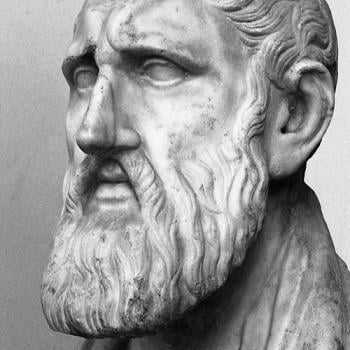Much more dubious [than the value of meditation] is Buddhism’s claim that perceiving yourself as in some sense unreal will make you happier and more compassionate. . . .
Even if you achieve a blissful acceptance of the illusory nature of your self, this perspective may not transform you into a saintly bodhisattva, brimming with love and compassion for all other creatures. Far from it—and this is where the distance between certain humanistic values and Buddhism becomes most apparent. To someone who sees himself and others as unreal, human suffering and death may appear laughably trivial. This may explain why some Buddhist masters have behaved more like nihilists than saints. Chogyam Trungpa, who helped introduce Tibetan Buddhism to the United States in the 1970s, was a promiscuous drunk and bully, and he died of alcohol-related illness in 1987. Zen lore celebrates the sadistic or masochistic behavior of sages such as Bodhidharma, who is said to have sat in meditation for so long that his legs became gangrenous.
What’s worse, Buddhism holds that enlightenment makes you morally infallible—like the pope, but more so. Even the otherwise sensible James Austin perpetuates this insidious notion. ” ‘Wrong’ actions won’t arise,” he writes, “when a brain continues truly to express the self-nature intrinsic to its [transcendent] experiences.” Buddhists infected with this belief can easily excuse their teachers’ abusive acts as hallmarks of a “crazy wisdom” that the unenlightened cannot fathom.
But what troubles me most about Buddhism is its implication that detachment from ordinary life is the surest route to salvation. Buddha’s first step toward enlightenment was his abandonment of his wife and child, and Buddhism (like Catholicism) still exalts male monasticism as the epitome of spirituality. It seems legitimate to ask whether a path that turns away from aspects of life as essential as sexuality and parenthood is truly spiritual. From this perspective, the very concept of enlightenment begins to look anti-spiritual: It suggests that life is a problem that can be solved, a cul-de-sac that can be, and should be, escaped.
I suspect that the amorality of Buddhism is part of its attraction for Westerners today. I’m glad that this person is waking up to the need for something more, though at this point he is lurching to scientific materialism.
Notice how Christianity is the opposite of Buddhism. It AFFIRMS the physical world, which God created and into which God was incarnate. It does not teach escape from the world but rather involvement in it. God Himself entered that world, and so do we in vocation. How odd that so many people are hostile to these joyous, mind blowing teachings–including that salvation is a free gift, that Christ has atoned for sinners, that everlasting life is ours for, on our part, nothing, though God Himself paid a great price for us.
I mean, I can see not believing it, perhaps because it is too good to be true, but why the hostility? And why embrace instead something so much smaller?












